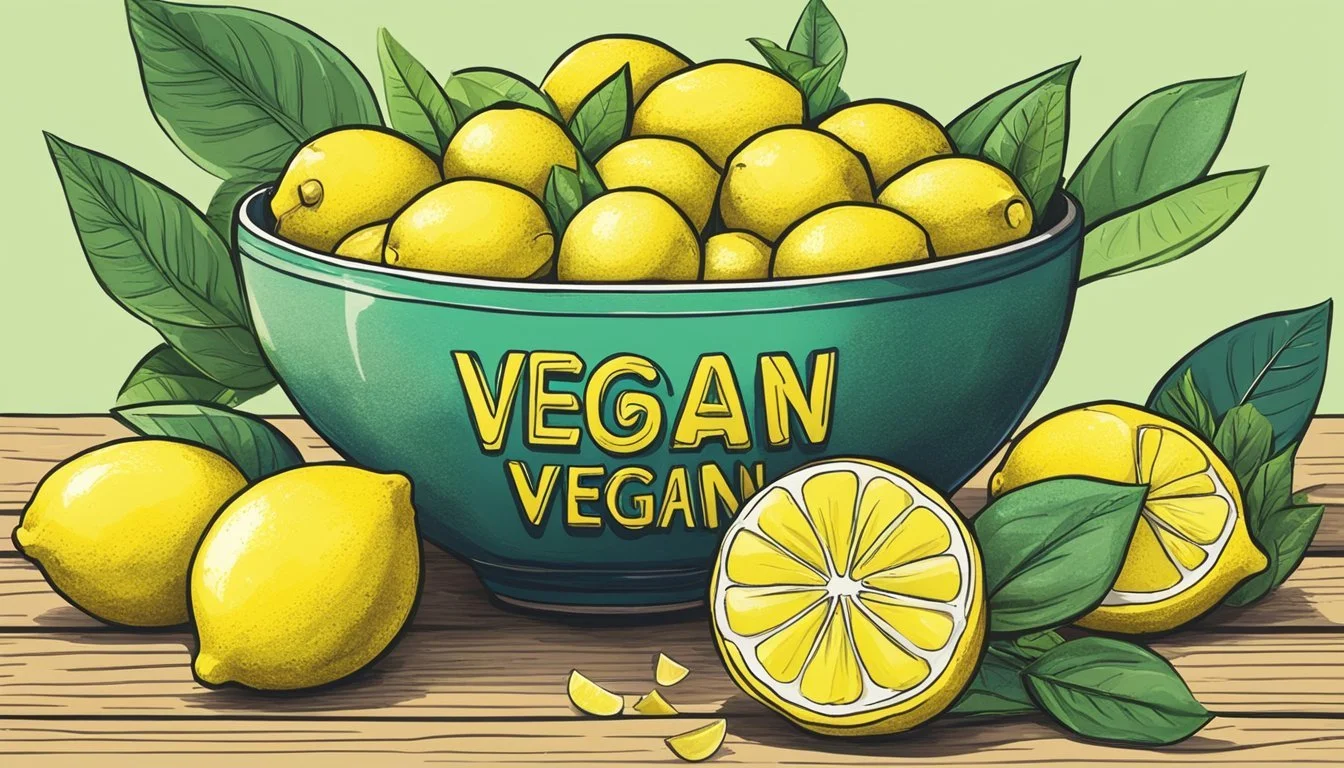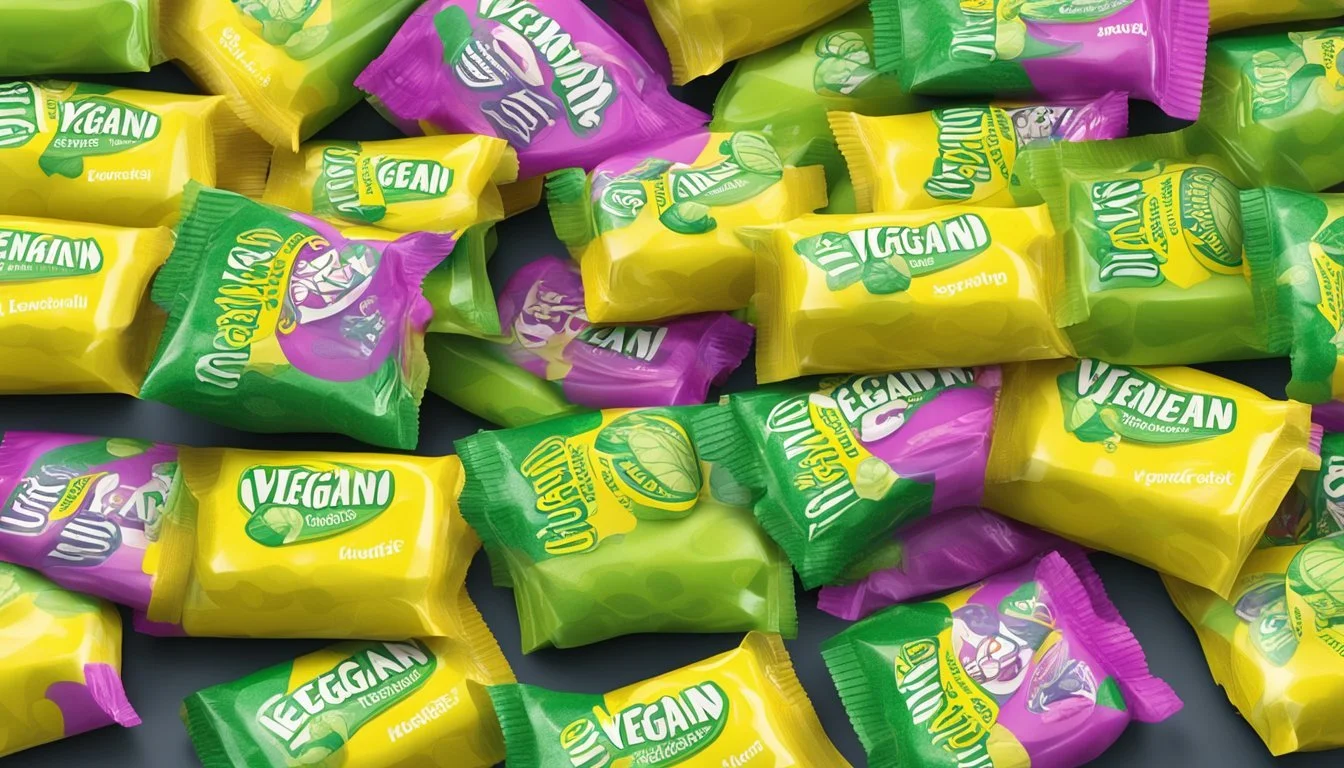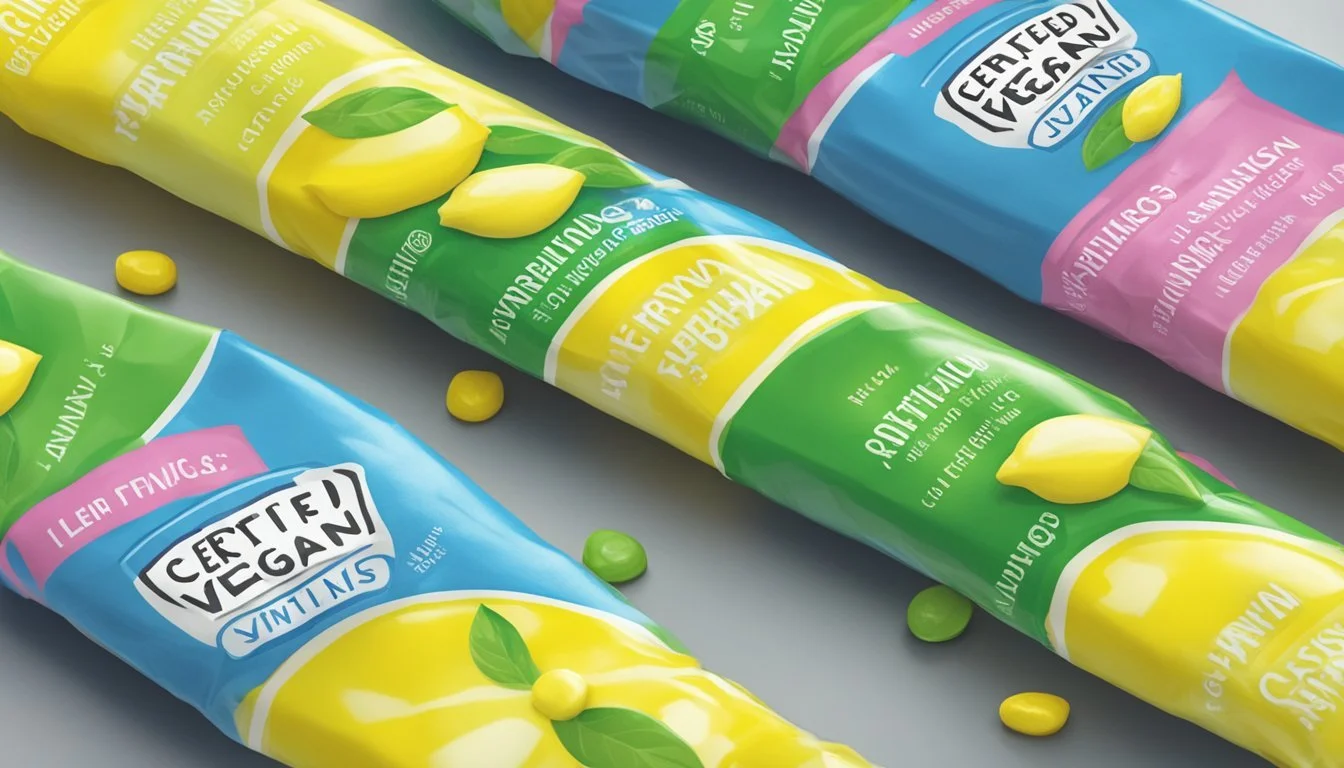Are Lemonheads Vegan?
Unwrapping the Truth About This Classic Candy
Lemonheads, the tangy lemon-flavored candy, have been a sweet treat enjoyed by many since their creation. With the rise in veganism, consumers are increasingly scrutinizing the ingredients of their favorite foods to ensure they align with a vegan lifestyle, which excludes all forms of animal exploitation and cruelty. Vegans avoid animal-derived products, including dairy, honey, and even certain additives derived from insects. The debate over whether Lemonheads can be considered vegan-friendly highlights the complexities of modern food manufacturing and the varied interpretations of what qualifies as vegan.
The controversy surrounding Lemonheads' vegan status primarily stems from the presence of confectioner's glaze in the ingredients. This glaze, known for providing the shiny exterior of the candy, is derived from shellac, a substance secreted by the female lac bug. As such, strict vegans consider Lemonheads non-vegan due to this animal-derived ingredient. Moreover, even beyond confectioner's glaze, other ingredients in Lemonheads have been flagged as contentious within the vegan community for their indirect animal associations or uncertain sourcing, further complicating the candy's classification.
Lemonheads Origin and Brand
Lemonheads are a distinctive candy brand with roots in the United States, famed for their tart and sweet flavor profile. This treat has maintained its presence in the candy market for decades, a testament to its enduring popularity.
Ferrara Candy Company
Ferrara Candy Company, based in the US, is the confectioner behind Lemonheads. It established the brand in 1962, and Lemonheads quickly became known for their sour citrus taste wrapped in a sweet coat. The round, hard candy reportedly produces an impressive 500 million pieces annually, making it a significant player in the candy industry. Ferrara's commitment to brand tradition, combined with innovative production techniques, helps ensure Lemonheads remain a beloved confection long after their initial launch.
Ingredients Overview
Lemonheads candy is scrutinized for its vegan status mainly due to its ingredients. In order to determine if Lemonheads are vegan, a thorough examination of the ingredients is necessary.
Core Ingredients
Lemonheads typically contain sugar, corn syrup, and citric acid, which serve as the candy's primary sweetening and sour agents. Modified food starch often functions as a thickening agent, ensuring the candies maintain their iconic shape and texture.
Coloring and Flavors
The vibrant appearance and taste of Lemonheads are largely attributed to the inclusion of colorants and flavorings. They normally incorporate Yellow 5 and Yellow 6 to attain their bright, lemon-like color. As for flavor, a mix of natural and artificial flavors is used to achieve the desired lemon taste that characterizes the brand.
Potential Non-Vegan Ingredients
Controversy regarding the vegan status of Lemonheads arises with certain ingredients like confectioner's glaze. This substance is derived from lac bugs, which raises questions about the vegan-friendliness of the candies. Additionally, while colors such as Red 40 are synthetically produced and not animal-derived, some vegans choose to avoid artificial colors due to ethical concerns related to animal testing.
Vegan Concerns
In assessing whether Lemonheads are vegan-friendly, a few key ingredients are at the center of contention within the vegan community. These include both obvious animal products and those whose animal origins may not be immediately apparent.
Animal-Derived Ingredients
The primary concern lies with confectioner's glaze, also known as shellac, which is derived from the secretions of the lac bug. This ingredient poses a problem for vegans, as it involves the use of an animal derivative, and the process of harvesting often harms or causes the death of these insects.
Confectioner's Glaze (Shellac): Derived from lac bug secretions.
Other ingredients occasionally used in candies that are not vegan include gelatin (produced from animal bones and skin), bone char (often used to whiten sugar), and carmine (a red dye made from crushed insects).
Controversial Ingredients
Some vegans are concerned about ingredients whose status as vegan-friendly is debatable. For example, the sugar in Lemonheads might be processed with bone char, although this is not always the case.
Sugar: May be processed with bone char to achieve its white color.
While Lemonheads do not contain gelatin or carmine, the presence of confectioner's glaze renders them non-vegan by strict standards. However, certain varieties of Lemonheads that do not contain this glaze may be considered vegan-friendly by those with less stringent criteria.
Certifications and Standards
When examining whether Lemonheads are vegan, it is essential to consider both the vegan certifications they may or may not hold, and the policies of Ferrara, the company that produces them.
Vegan Certification
Vegan certification serves as a reliable reference for consumers looking to purchase products that adhere to vegan standards. A product that has been certified vegan typically does not contain animal products or byproducts, and has not been tested on animals. In the case of Lemonheads, they lack such certification partly due to the presence of confectioner's glaze, which contains shellac derived from the lac bug.
Certifying bodies such as The Vegan Society or PETA's Beauty Without Bunnies program offer recognizable logos that consumers can trust. Products bearing these logos have been scrutinized and meet strict guidelines to be labeled as vegan. Since Lemonheads have not been granted such certification, consumers relying on these endorsements would not consider Lemonheads to align with vegan standards.
Company Policies
The policies of a company can also indicate how seriously it takes vegan and cruelty-free practices. Ferrara's policies, regarding their use of animal-derived ingredients and animal testing, play a crucial role in determining if their products can be considered vegan or cruelty-free. At this time, it appears that Ferrara has not established a clear cruelty-free policy nor have they labeled their Lemonheads candy as vegan. This directly impacts consumers who depend on a company's commitment to vegan principles.
Without explicit company policies that align with the requirements for vegan certification, or an official cruelty-free stance, Lemonheads remain in a category that does not satisfy the strict criteria set forth by vegan and cruelty-free standards.
Alternative Vegan Confections
For those seeking vegan sweets, particularly after learning that Lemonheads may contain non-vegan ingredients like confectioner's glaze, there are ample alternatives made with vegan-friendly ingredients like organic sugars and natural flavorings.
Vegan Lemon-Flavored Candies
Lovely Organic Hard Candies: These candies are crafted with organic cane sugar and natural lemon flavor, offering a vegan alternative that doesn't compromise on the tart, fruity taste reminiscent of Lemonheads.
YumEarth: YumEarth provides a variety of citrus-flavored candies, including lemon-flavored options that are made with organic ingredients, free from animal derivatives, and thus suitable for a vegan diet.
Other Vegan Candy Brands
A variety of brands offer vegan candies that exclude animal-derived ingredients like gelatin, confectioner's glaze, and certain refined sugars processed with bone char. Here are some noteworthy vegan-friendly confections:
Swedish Fish: Known for their chewy texture and sweet flavor, Swedish Fish are free of animal-based ingredients.
Jolly Ranchers: Offering a spectrum of flavors, these hard candies are generally considered vegan, but vegans should check the ingredients for each variety as formulations can change.
Vegan Chocolate: For chocolate lovers, there are various brands producing vegan chocolate using ingredients like cane sugar, cocoa, and plant-based milks.
It's important for consumers to verify ingredients, as manufacturers may alter their formulations, and some ingredients like refined sugars may have processing methods that involve animal products. Vegan candies often use beet sugar or organic cane sugar to ensure a fully vegan confection.
Consumer Information
When examining the vegan status of Lemonheads, consumers should look at ingredients and the manufacturing processes involved. This section provides guidance on how to read labels and determine the vegan status of candies like Lemonheads.
Label Reading Tips
Ingredient Checklist: Consumers should scan the label for non-vegan ingredients such as confectioner's glaze, which is derived from the secretion of lac bugs, and thus not vegan. Ingredients like natural flavors and food coloring can be of both plant and animal origin, requiring further inquiry with the manufacturer.
Check for Certifications: Vegan certifications from reputable organizations can provide assurance about the product's compliance with vegan standards.
Evaluating Candy Vegan Status
Manufacturing Process: The vegan status of a product like Lemonheads can be affected by the use of animal products in the manufacturing process. For example, refined sugar could be processed with bone char, which is a concern for vegans, even though the sugar itself does not contain animal products.
Ingredients Review: Attention should be paid to ingredients such as modified food starch (corn) and organic brown rice syrup, which are generally considered vegan, as they are plant-based and do not typically involve animal products in their production.
Ethical and Environmental Considerations
When examining Lemonheads in the context of veganism, it is important to consider the environmental impact of their ingredients, as well as the ethical implications surrounding their production.
Environmental Impact of Ingredients
Sugar: It is a primary ingredient in Lemonheads. The cultivation of sugarcane can lead to deforestation, which adversely affects ecosystems, particularly in countries such as India where forests are diverse. Responsible sourcing from areas not contributing to deforestation, or opting for natural alternatives like agave, could mitigate these concerns.
Citric Acid: Found naturally in citrus fruits, the commercial production often involves fermentation processes. Choosing citric acid derived sustainably can lessen the environmental burden.
Ethical Implications of Ingredients
Gelatin (if used): Gelatin is not a vegan ingredient as it is derived from animal collagen. Its inclusion would not align with vegan ethical innovation striving for cruelty-free products. Verify if Lemonheads contain gelatin; if so, their vegan status is negated.
Artificial Colors: The testing of synthetic colors sometimes involves animal testing. Ethical considerations advocate for cruelty-free certifications or the use of natural colorants stemming from plant sources, aligning with a vegan ethos.
Conclusion
Lemonheads, the well-known candy brand, has ingredients that raise concerns for individuals following a vegan lifestyle. Confectioner's glaze is the primary ingredient in question; it is derived from the secretions of the lac bug, thereby disqualifying Lemonheads from being considered strictly vegan. For those adhering to a vegan diet, it is clear that Lemonheads may not align with their ethical consumption guidelines.
To remain factual, some Lemonhead varieties do not contain this animal-derived ingredient and those may be labeled as vegan-friendly. Consumers wishing to maintain a vegan diet should scrutinize the labeling and opt for those specific varieties.
Below is a breakdown of relevant Lemonheads information for quick reference:
Ingredients: Lemon juice concentrate, fruit flavors, confectioner's glaze (in most varieties)
Vegan Concern: Confectioner's glaze (derived from lac bugs)
Vegan Varieties: Some varieties may not contain glaze
Candies bearing the "vegan" label provide assurance for vegans in their quest for ethically suitable alternatives. It is always recommended that shoppers read ingredient lists carefully to ensure the products they are purchasing meet their dietary preferences. The importance of clarity in labeling cannot be overstated, as it assists consumers in making informed choices that are congruent with their values and dietary restrictions.










